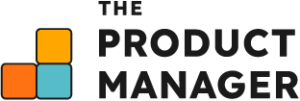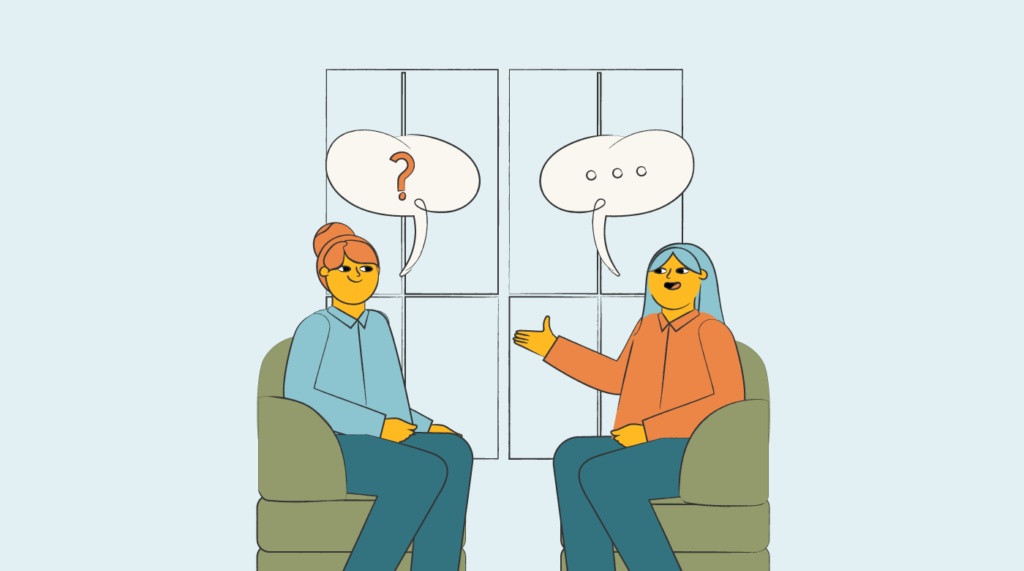So, you found your ideal product manager job on Google or LinkedIn. You sent in your resume and got the interview. The next step is to prepare by knowing what product manager interview questions you might be asked.
Going into your meeting well-prepared means you’ll be confident no matter how nervous you are. Interviews will cover a wide range of questions about the various aspects of what a product manager does. Below are some practice job interview questions and answers to help you get ready and build up your confidence, so you can impress the hiring manager.
14 Product Manager Interview Questions & Answers
Here's a list of some common product manager interview questions and answers.
1. We're all on a path of learning. What are 2 things you're trying to improve on that you believe will make you a better product manager?
Pansy Lee, a Product, Growth, and Innovation specialist, says that she likes to ask this question in interview because:
"It's a different way of asking about strength and weaknesses and gets the candidate to be more honest. I find the strength and weakness question usually produces fake "weakness" answers. And they're not always weaknesses, it's impossible to be good at ALL parts of the job. By framing it as the things I'm learning right now, you get a sense of where they might not be strong, but it also frames it in a positive way because they're able to talk about what they're doing to cover that knowledge/skills gap."
Answer:
Ideas for skill areas you can improve as a product manager include: data analytics , using more insights and developing better KPIs, prioritization, user experience, design thinking, negotiation, roadmapping, product strategy, conducting research, team building and leadership skills, etc.
2. What is one of your super powers as a product manager?
Pansy said that she likes to end off the product manager interview with the super power question.
"I want to know what makes you unique and what I should continue to cultivate when they join. It also gives me insight into whether or not they are the right candidate for the role. Product management is different at every company and understanding their super power is a great way to help differentiate candidates when all the core skills are met."
Answer:
There are probably so many things that make you a great product manager. Choose something that resonate with you. Think outside the box—is there something from your personal life or soft skill set that transfers well into your work? For example, your superpower could be your integrity, humility, self-discipline, optimism, ambition, commitment to self-improvement, your tolerance for taking risks, or more.
3. How would you outline our product if someone wanted something similar but with the cost being $20 less?
This question will be asked one way or another as one of the first PM interview questions. Its asked to see if you have looked at the company’s products and learned something about them. It also evaluates key project manager skills such as communication and prioritization skills.
Answer:
Discuss product features and do a basic cost-benefit analysis as best you can from your research. Explain the benefits of keeping the price and what a buyer would get for it. Show your clear thought process, technical skills, and how you would communicate with the buyer.
4. How would you improve Netflix?
Jeremy Toeman, Product Management Executive, says he likes to ask this question in his interviews.
"It takes a very well known and mostly loved product, and challenges someone to improve upon it. And, as it’s a relatable product, one doesn’t require any special domain knowledge to be able to answer."
Answer:
Jeremy says that he looks for people to be able to answer the question thoughtfully, reflect basic product and design thinking.
"It’s both easy and hard at the same time, so it gives me insight into how the candidate thinks about and approaches problems."
5. We are going to start to produce the successor of our most popular product. How would you ensure that the original product continues to sell well once the new one is released?
This is a good product marketing manager question to see that you understand customer practices and how to target certain segments of the market. It determines if you can come up with a solution that is helpful and that maintains profit. It's also a test of your grasp on product strategy.
Answer:
Discuss a lower price point for the original product and how you can reach the consumers who are more conscious about their budget. Not everyone wants the version with new features; some will be happy with an older quality version at a reduced price. This way, you capture both the budget-conscious market as well as the newer market with both products.
Show you have a practical solution, understanding of consumer practices, and a good handle on the consumers you are targeting.
6. What tactics and processes would you use to manage the launch of a new product?
This is one of the product management interview questions that assess how you look at teamwork and timing. Your interviewer will want precise answers rather than vague generalities. Teamwork, timelines, and tracking progress are important. This question also evaluates whether you have an understanding of a product roadmap and following it through to product launch.
Answer:
Talk about developing a launch with input from the team and key stakeholders. Mention schedules for dates and deliverables, weekly progress reports, and more meetings closer to product launch to make sure there are no glitches. Work to make sure marketing targets the right customers while keeping the original intent of the product.
7. We all have things we like and dislike in our daily routines. What is something you are not fond of as a product manager?
Interviewers use this question to see if your style fits with theirs. If they are a teamwork-based company and you say you like to work alone then they aren’t going to be keen to hire you. They want you to be truthful so don’t say you love everything.
Answer:
Every company is different but you should do your homework so you know what the company atmosphere is like. Frame your answer to fit the culture so that way they know you are a good fit. Maybe you dislike paperwork - which is fine to say, as long as you back it up with how you deal with your dislike of it and keep the discussion on track.
8. What do you think defines good product design?
Everyone has a different idea about what defines a good design but your interviewers want to see if your priorities align with those of the company.
Answer:
While you do not need to be overly specific, make sure you talk about customer ease of use and ensuring the product delivers on its promise to consumers. Easy out of the box use means good design.
9. How would you improve our current product?
The interviewer wants to know that you understand the current product and can assess it. They want to see you can look for the pros and cons of what they’re putting out there.
Answer:
Point out the pros of the product first and the good things that you have seen and read about it. Then, point out one thing you might change. It could be around the product itself or the target audience that the product is marketed towards.
There are lots of options to show your knowledge of the product. Try choosing your favorite product made by the company, if they have multiple, and evaluate it. This will show that you've done your research on the company, and that you're not afraid to iterate and find the best solution, even on a product that you are already happy with.
10. What is your strongest skill set as a product manager?
This question is looking to see what you are good at and what you will bring to the team. They are looking for skills that are useful, result-oriented, and beneficial to the team. Some skills to consider are problem-solving and communication skills, as these are crucial for product managers.
Answer:
Pick a skill that you are top-notch at and build on your success with it. This is an opportunity to show off what you know and the successes your skillset has led to. Choose the one that is your strongest.
11. What is a weakness in your skillset?
They are looking for honesty and not just a made-up answer to make you look good. They want to make sure that the skill you’re lacking is manageable and that you can work to make it better.
Answer:
Tell them truthfully what you struggle with and how you deal with it being a weakness. If it's paperwork, then explains how you set time aside to work on it without distraction. Always have an answer for how to make your weakness stronger.
12. What do you do in your current position?
This is to make sure you have some experience and knowledge that is transferable from the job you are in. Even if you are moving up, they still want to know you have some background in the right area.
Answer:
Be clear about your job parameters and the responsibilities you currently have that match the job you are applying for. You want them to blend so they see your competency and experience.
13. What are some of the challenges you see in our sector?
This product owner interview question is intended to ensure you know the marketplace and product lines both in this company and the competitors.
Answer:
Be very clear about the sector as a whole and how you see this company meeting those challenges shortly. Show you know the marketplace and its pros and cons.
14. What's an important trend in technology that is impacting product management?
This interview question will help you learn about how the candidates views technology and provides opportunities to ask further questions about their experience with related product management tools and software for doing their day-to-day work.
Answer:
There are many trends in technology you could bring up, including areas such as:
- The integration and use of AI in product development and management
- The growing importance of data security and cybersecurity
- Using technology to support hybrid product teams
Additional Product Manager Hiring Resources
Here are some additional guides to help you build your product management team and career:
- A walkthrough of the key product manager resume sections and how to create a great resume
- A guide for hiring product managers and building your A-team
- A list of the core product manager skills and how to build them
- A guide explaining what product managers do
- An explainer on the product manager career path and different roles
Join For More Product Management Insights
Product manager interview questions vary depending on the position and the product but practicing questions like this and using The Product Manager newsletter can help you prepare for the interview process. The more insight you have, the more comfortable you will be in your PM interview.


